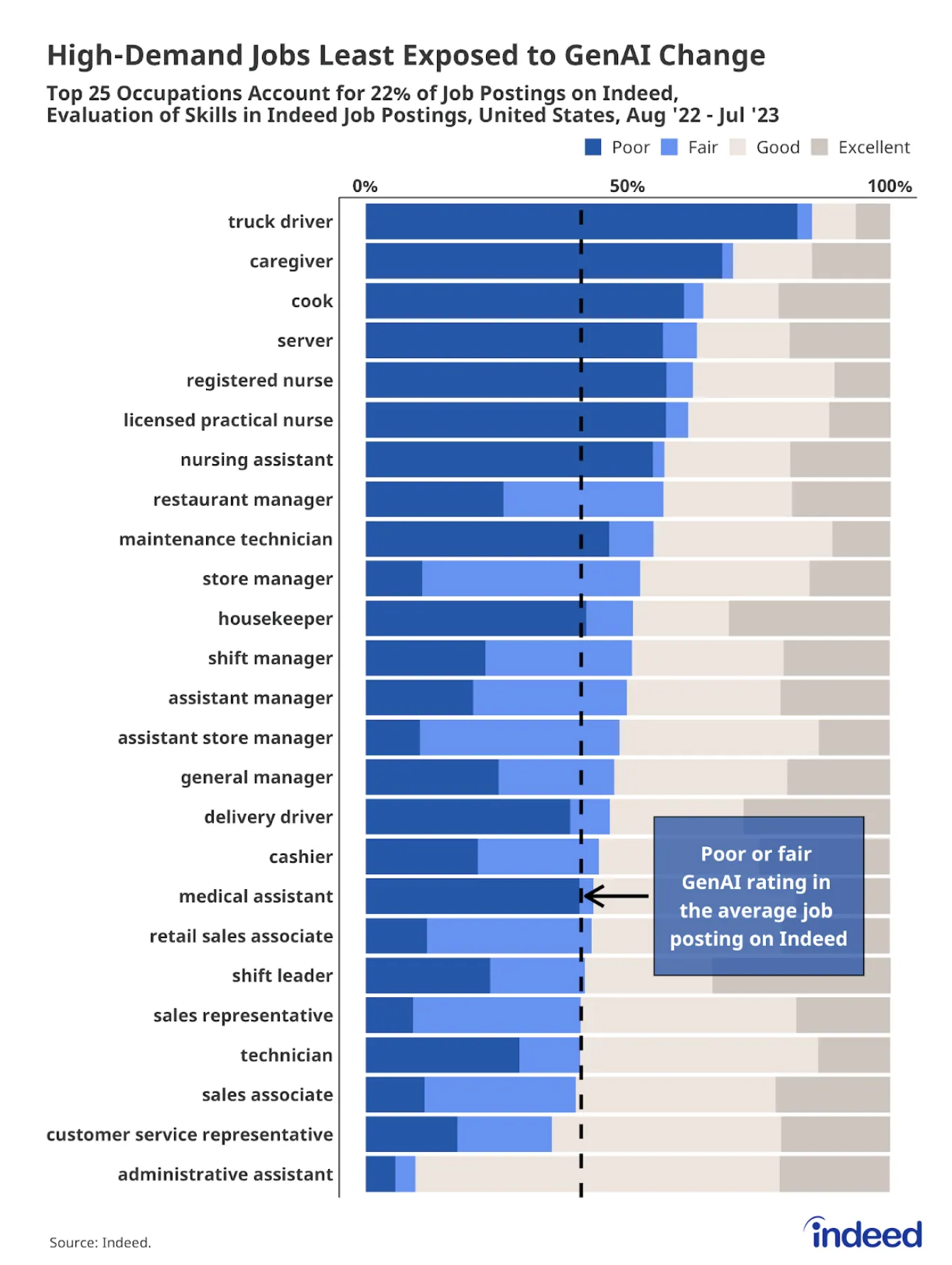Table of contents
- A Basic Overview on SEO
- The Evolution and History of SEO
- Various Categories of SEO
- SEO Fundamentals: Keyword Research
- Effective Content: How On-Page SEO Works
- Technical SEO: The Hidden Factors
- Off-Page SEO: Building Your Website’s Reputation
- Local SEO: Key to Capturing the Local Market
- SEO Tools and Analytics
- SEO Strategies and Best Practices
- The Future of SEO: Trends and Evolution
- SEO Pitfalls: Common Mistakes to Avoid
- The Importance of SEO in Digital landscape
A Basic Overview on SEO

What does SEO mean?
Search Engine Optimization, or simply SEO, is an approach to enhance the visibility of websites and their content on search engine results pages (SERPs). The primary objective of search engine optimization is to drive more organic traffic and capture potential customers by improving site ranking.
SEO in the Digital World
In our digital-oriented society, SEO plays a critical role in promoting businesses. It enables companies to connect effectively with their target audience, who largely rely on search engines for information, products, and services.
A Quick Look at SEO Mechanisms: Crawling, Indexing, and Ranking
Search engines such as Google utilize processes called crawling, indexing, and ranking to comprehend and rank web pages. Crawling is the activity of search engine bots exploring websites and accumulating information. This data are indexed and then ranked according to many factors which determine its relevance to specific search queries.
The Evolution and History of SEO

SEO: From Keywords to High-Quality Content
The focus of SEO has significantly shifted over the years. Initially, the main concern was keyword density and optimization. Nowadays, with increasingly intelligent search engines, high-quality and value-adding content is essential.
How Search Engines have Progressed
Search engines’ algorithms and ranking systems have gotten more intricate and are now based on a variety of factors including user experience, relevance, credibility, and user engagement. These updates enhance the accuracy of search results.
Noteworthy Updates in Search Engine Algorithms
To enhance user search experience, search engines regularly update their algorithms. Important milestones include Google’s Panda update, which penalizes low-quality content, and the Mobile-First Indexing update, which prioritizes mobile-optimized sites.
Various Categories of Search Engine Optimization

On-Page SEO in a Nutshell
On-Page SEO pertains to optimizing website elements to promote visibility and ranking. This includes factors like title tags, meta descriptions, heading tags, URL structures, image optimization, and internal linking.
A Brief About Technical SEO
Technical SEO is concerned with optimizing the technical portions of a website. This includes factors like site speed, mobile responsiveness, secure connection (SSL), structured data, and XML sitemaps, all aimed at improved search engine crawling and indexing.
Understanding Off-Page SEO
Off-Page search engine optimization revolves around activities done outside of the website to enhance its visibility and credibility. This includes acquiring high-quality backlinks, managing online reputation, social signals, and engaging in relevant online communities and forums.
Local SEO: The Key to Successful Local Searches
Optimizing a website for local search queries is what Local SEO is all about. This involves optimizing Google My Business listings, local citations, localized content, and obtaining positive reviews from local customers.
A Primer on Mobile SEO
Mobile search engine optimization is about optimizing a website for mobile devices to ensure a smooth and user-friendly experience. In the age of increasing mobile usage, search engines prioritize mobile-friendly websites in their rankings.
SEO Fundamentals: Keyword Research

Keyword Research: The Process and Importance
Keyword research involves identifying and analyzing the keywords and phrases pertinent to your business and target audience. Comprehending what users search for enables you to suitably optimize your content.
Digging Into Keyword Difficulty and Search Volume
Keyword difficulty shows how tough it is to rank for a particular keyword, while search volume shows how often the keyword is searched. Striking the right balance between high search volume and reasonable keyword difficulty is critical for effective keyword targeting.
Understanding Intention Behind Keywords
Different keywords can have different user intents, such as informational (seeking information), navigational (looking for a specific website) or transactional (ready to make a purchase). Understanding these intentions helps fine-tune your content and optimize conversions.
Tools and Methods for Effective Keyword Research
Tools such as Google Keyword Planner, SEMrush, and Moz Keyword Explorer can facilitate effective keyword research. Analysing competitor keywords, user-generated content, and conducting surveys can offer useful insights.
Effective Content: How On-Page SEO Works

Producing Quality Content: The Building Block
High-quality, relevant content is imperative for gaining user engagement and high search engine ranking. Content needs to be well-written, informative, and aligned with the expectations of the target audience.
Optimizing Titles, Headings, and Meta Descriptions
Titles, headings, and meta descriptions provide the apt information about your webpage to both users and search engines. These elements, when optimized with relevant keywords and persuasive descriptions can improve click-through rates and search rankings.
Efficacies of Image Optimization
Optimized images with relevant text, file names, and reduced sizes can enhance website performance and user experience. Moreover, including captions and using descriptive filenames improves the accessibility and searchability of images.
Internal Linking: A Powerful Strategy
Internal linking is the process of linking pages within the same website. This helps establish website structure, guide search engine crawlers, and distributes link equity throughout your site. Strategic internal linking can improve user navigation and search engine visibility.
Technical SEO: The Hidden Factors
Connection Between Site Speed and Better User Experience
Fast-loading websites offer a better user experience and contribute to improved search engine rankings. Site speed can be improved by optimizing images, leveraging browsing caching, and minimizing unnecessary plugins or scripts.
The Imperative of Mobile-Friendly Websites
Given the increasing usage of mobile devices, a mobile-friendly website is crucial. Implementing responsive design ensures the website offers a seamless experience across different screen sizes and devices.
The Importance of SSL and Website Security
Securing connections with SSL certificates (HTTPS) not only safeguards the users’ information but also enhances website rankings. Search engines give ranking preference to secure websites.
Understanding Structured Data and Schema Markup
Structured data and schema markup aid search engines in understanding and interpreting content. They provide additional context like ratings, reviews, and events, which can enhance search engine results with rich snippets.
About XML Sitemaps and Robots.txt Files
XML sitemaps help search engines to efficiently crawl and index webpages. Conversely, robots.txt files provide instructions to search engine bots on navigating and accessing specific parts of a website.
Off-Page SEO: Building Your Website’s Reputation

Backlinks and their link to SEO
Backlinks, or inbound links, are links from other websites directed towards your site. They are a valuable ranking factor and they vouch for the trustworthiness and authority of your website.
The Role of Anchor Text and Link Relevance
Anchor text refers to the clickable text within a hyperlink. Using relevant anchor text that accurately describes the linked content assists search engines to understand the context and relevance of the linked page.
Effective Link Building Strategies
Building superior quality backlinks involves different strategies like guest blogging, influencer outreach, broken link building, and content promotion. It’s crucial to focus on relevance, authority, and ethical link building practices.
Managing Your Online Reputation and Presence
Monitoring and managing your online reputation through social media, reviews, and customer feedback are vital for establishing trust and credibility. Positive reviews and social signals contribute to your website’s off-page SEO.
Social Signals and SEO
Search engines consider social signals, like likes, shares, and comments as indicators of content quality and relevance. Incorporating social media into your SEO strategy can amplify your brand visibility and boost organic traffic.
Local SEO: Key to Capturing the Local Market
Google My Business and Local Listings
Setting up and optimizing a Google My Business profile is crucial for local SEO. It enhances your online presence in the local search results, provides key business information to potential customers, and lets you manage customer reviews.
The Significance of Local Citations in Local SEO
Local citations are references to your business’s name, address, and phone number (NAP) on other websites. Consistency, accuracy and the number of citations influence local search rankings.
The Impact of Reviews on Local SEO
Online reviews greatly impact local SEO. Positive reviews not only enhance your business’s reputation but also increase visibility in local search results.
Localized Content and Keyword Strategies
Creating localized content, including location-specific content and blog posts, helps you target local keywords and allows you to interact with local audiences more effectively. Including local keywords and location information in your content strategy is vital for successful local search engine optimization.
Search Engine Optimization Tools and Analytics

SEO Tools: The Essentials
Several SEO tools are available to track and optimize your online performance. Google Analytics, Google Search Console, SEMrush, Moz, and Ahrefs are some popular tools offering useful insights into website traffic, keyword rankings, backlink profiles, and more.
Using Google Analytics to Monitor SEO Performance
Google Analytics is a robust tool providing detailed data about website traffic, user behavior, conversion rates, and more. It shows which SEO strategies yield the best traffic and conversions, enabling informed decision-making.
Exploring Other Analytics Tools
Beyond Google Analytics, several other analytics tools provide deeper insights into different aspects of SEO performance. These tools assist in monitoring website health, keyword rankings, competitor strategies, and identifying growth opportunities.
SEO Reporting: Tracking and Communicating Performance
Regular reporting of search engine optimization enables you to track SEO progress and communicate results to stakeholders. Developing clear, visually appealing reports that highlight key metrics and actionable insights is integral for showcasing the value of SEO to your organization.
SEO Strategies and Best Practices

Formulating a Tailored SEO Strategy for Your Business
A successful SEO strategy requires understanding your business goals, target audience, and the competition. Customizing your SEO approach based on these aspects can help prioritize efforts, allocate resources and achieve sustainable SEO success.
Adhering to Sustainable SEO Practices
Sustainable SEO practices involve creating valuable content, optimizing user experience, building quality backlinks, and engaging with your audience. Keeping updated with industry trends and search engine algorithm changes is essential for continuous success.
Steering Clear of Search Engine Optimization Practices That May Lead to Penalization
Search engines penalize websites that adopt manipulative or black-hat SEO tactics. It’s important to avoid tactics such as keyword stuffing, cloaking, using hidden text, and link schemes which may lead to severe penalties and harm your website’s reputation.
Aligning SEO Efforts with User Behavior
Understanding user behavior is vital in shaping your SEO strategy. Factors that impact user experience such as site speed, mobile-friendliness, relevant content, and intuitive navigation are essential contributors to user satisfaction and improved search engine rankings.
The Future of SEO: Trends and Evolution

Emerging SEO Trend and Techniques
SEO trends are continually changing due to advancements in technology and changing user behavior. Notable emerging trends include voice search optimization, artificial intelligence (AI) and machine learning in search engine optimization, and the growing significance of visual and video content in search results.
The Role of AI and Machine Learning in SEO
AI and machine learning are transforming search engine algorithms and ranking factors. AI-based tools aid in keyword research, content optimization, and identifying user intent, making them beneficial for search engine optimization practitioners.
The Rise of Voice Search
With the popularity of voice-activated devices and virtual assistants, voice search is gaining prominence. Optimizing content for voice search involves understanding natural language patterns, using long-tail keywords, and providing concise and relevant answers.
SEO Considerations for Increasing Visual and Video Content
The growing consumption of visual and video content presents new opportunities for SEO. Optimizing alt tags, captions, and transcripts, along with using structured data for video content allows search engines to effectively understand and index visual elements.
SEO Pitfalls: Common Mistakes to Avoid

Don’t Overdo It: The Risks of Over-Optimization and Keyword Stuffing
Over-optimizing content with excessive use of keywords can hamper user experience, lead to keyword stuffing penalties, and lower search rankings. It’s crucial to maintain a balance between optimization and crafting engaging content.
Ignoring Technical SEO can be Perilous
Technical SEO, frequently overlooked, is critical for search engine visibility. Ignoring technical factors like site structure, crawlability, and website speed can impede your search engine optimization efforts and affect your rankings.
Don’t Neglect Mobile Users
Ignoring mobile users can be detrimental to your search engine optimization performance, considering the prevalence of mobile devices. Failing to optimize your website for mobile may lead to poor user experience and lower search rankings.
The Danger of Underestimating Content Quality
Quality content lies at the heart of successful SEO. Undermining its importance can result in low user engagement, a high bounce rate, and poor search rankings. Hence, investing in well-researched, informative, and engaging content is vital.
The Importance of SEO in Digital landscape

SEO: A Continuous Process
SEO is a continuous process that calls for continual monitoring and adaptation as search engine algorithms and user behavior evolve. Staying updated and modifying your strategies accordingly is vital for maintaining and enhancing search engine visibility.
Invest in SEO for Long-Term Growth
Investing in search engine optimization contributes to the long-term growth of your business. The benefits of SEO including increased organic traffic, brand visibility, and customer acquisition make it worthwhile.
SEO: A Vital Aspect of an Integrated Digital Strategy
Incorporating search engine optimization into your comprehensive digital marketing strategy magnifies its impact. SEO complements other marketing channels like social media, content marketing, paid advertising, and email marketing to augment your online presence and promote business growth.




